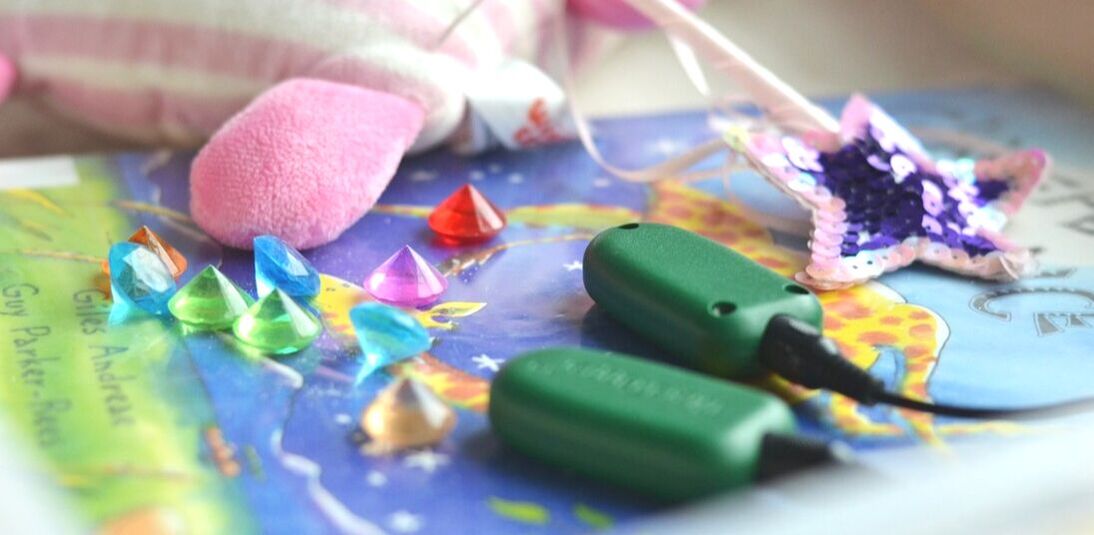|
EMDR and Play Therapy is a brilliant combination for healing trauma.
Children and young people lack the abstract reasoning and verbal processing skills to engage in therapy that is primarily talk based. They also need therapy that is engaging and accesses all portals of learning: visual, auditory, and tactile and kinesthetic. And this last portal? Well... it happens to be the primary portal of learning for children under 11, so it’s pretty dang important to incorporate touch, movement, and activities into EMDR. So taking all of this into account having a child sit still and “notice that” isn’t going to get you that far. It will likely either lead to underaccessing, boredom, or flooding outside of the window of tolerance. Which is not a winning combination for trauma work. Young people are already distressed knowing they are going to begin some form of trauma work. They are smart. Young people know that eventually they will get to the tough stuff. All of this can leave therapists trained in EMDR a little apprehensive to begin to do this work with children. And I get it! Most EMDR basic trainings have so much to fit in that training comprehensively to modify the EMDR approach for children isn’t something that is achievable. So it is understandable how many professionals exit the basic training and feel a bit overwhelmed by thinking about starting this work with young people. You can learn more about EMDR therapy and kids HERE and HERE! AND I always recommended extra training and consultation before starting. You can also check out these three books HERE, HERE, and HERE which are always on my list of recommendations for professionals starting EMDR work with children. Now when you get down to it and are ready to do this work with young people, my three favorite things to help with engagement and help young people access all three portals of learning are play, books, and games! Play Play is an excellent way to help young people keep within their window of tolerance. It also allows young people to communicate in a different way about their struggles, symptoms, and trauma and show you their world. Engaging in a type of play such as Child Centered Play Therapy can help gain insight into specific Negative and Positive cognitions a child may have relating to their trauma. You might also get insight into specific resources that may be helpful or places there may be blocking beliefs. Ann Beckley-Forest and Annie Monoaco have a fantastic text on the integration of Play Therapy and EMDR that is a must read! Play also helps you gain rapport and trust with a young person. Unlike adults, most young people don’t present themselves for therapy with high levels of engagement and motivation to work through trauma. For this reason I believe children and teens may need a longer period of rapport building to increase trust before going into the depths of their trauma. This is especially true for complex trauma as opposed to a single incident trauma. Play therapy activities such as sand tray, drawing, or other creative activities are also essential for phases 3-8! Books I absolutely LOVE books. Books can be used in phase 2 to help with tasks like increasing emotional literacy, emotional regulation, state change, adding adaptive information into appropriate neural networks, and normalizing an experience. The experience of watching a child as they are able to connect and identify with a book, see themselves in the characters, and the look of relief as they realize they are not the only one to have experienced something is truly amazing. Books are also externalizing and directive so they can be a safer activity to begin trauma work. Check out these resources HERE, HERE and HERE to help with emotional literacy and emotional regulation! This book HERE is also an excellent resource to help young people identify Negative Cognitions, Positive Cognitions, develop resources and to explain EMDR and trauma processing! It also happens to be one of my most favorite Bibliotherapy books! Games Games are another essential to help engage in a strong phase 2, which sets you up for an excellent desensitization and reprocessing of trauma memories. It allows the young person to come in being an expert in identifying thoughts (to help with NCs and PCs), feelings and body sensations. When you ask all the questions for phase 3 they will be ready! There are tons of Play Therapy games to help increase emotional literacy, identify cognitions, identify areas of resilience and strength, increase window of tolerance (especially practicing losing!), and practice scaling like you will need with the VoC and SUDS. Check out this article HERE on 3 ways that games with bubbles can help you provide psychoeducation about feelings, engage in state change, and identify thoughts. This game HERE of Strengths and Struggles can help young people identify strengths that are great for resourcing and identify struggles that may be incorporated into Negative Cognitions. These are my three ingredients that are essential for modifying the EMDR protocol for use with young people! What about you? What are your favorite activities? Comment below! Want to know more about trauma, EMDR, and children? Check out my training on Playing Through Phase 2: Combining Bibliotherapy and Play Therapy for Phase 2 of EMDR.
2 Comments
Heather
6/2/2021 05:14:00 am
Have you seen The Journey EMDR board game? It has been very helpful in using EMDR with clients in that 6-11 age range
Reply
Ann
6/3/2021 06:12:23 pm
Hi Heather! Yes I have seen the Journey game! It definitely holds your hands through the steps in an engaging way!
Reply
Leave a Reply. |
Hi, there!I'm Ann Meehan, an LPCC, Loading... Archives
July 2024
Categories
All
|
Privacy Policies | Terms of Use | Disclaimer
Contact
[email protected] | Copyright Meehan Mental Health Services 2022
Contact
[email protected] | Copyright Meehan Mental Health Services 2022





